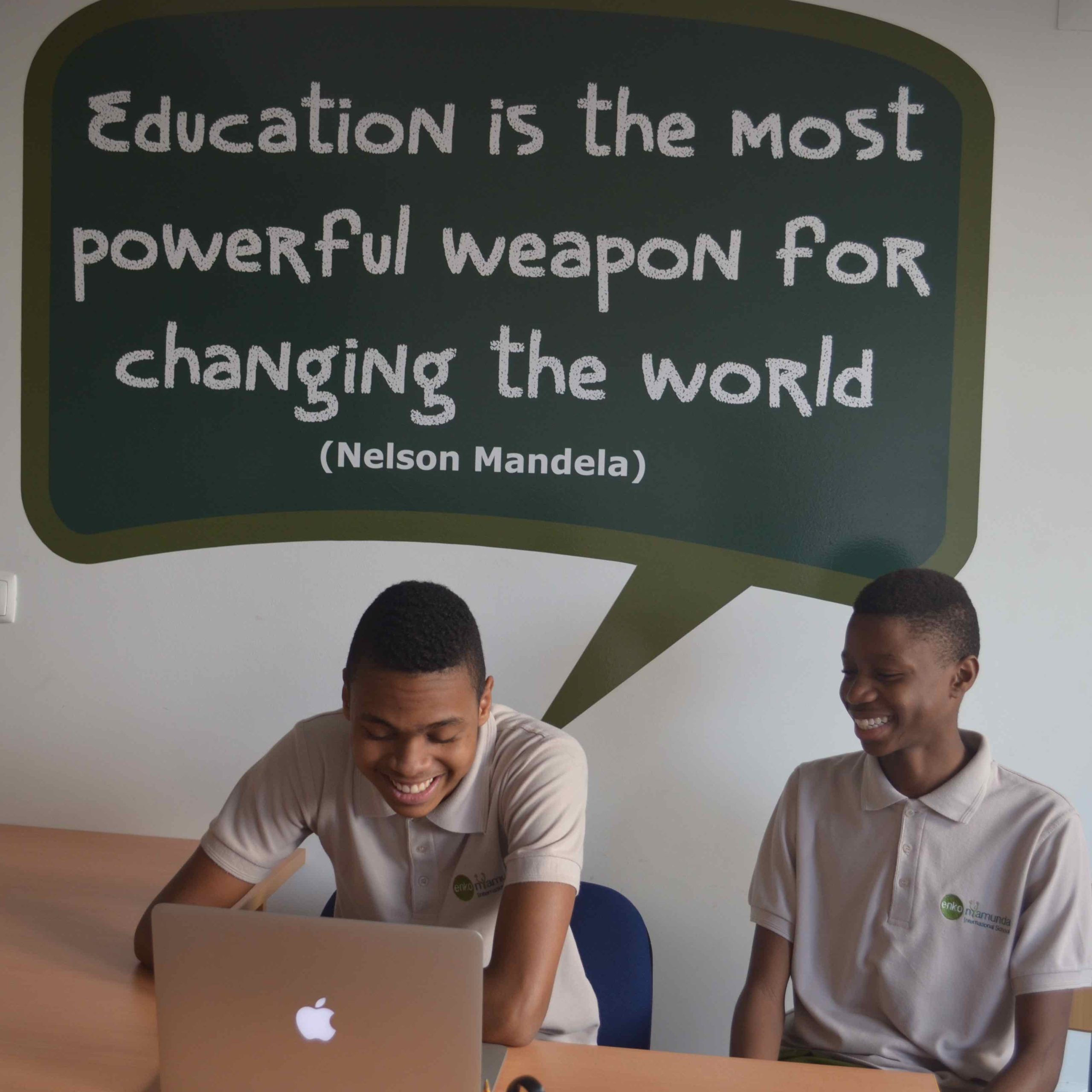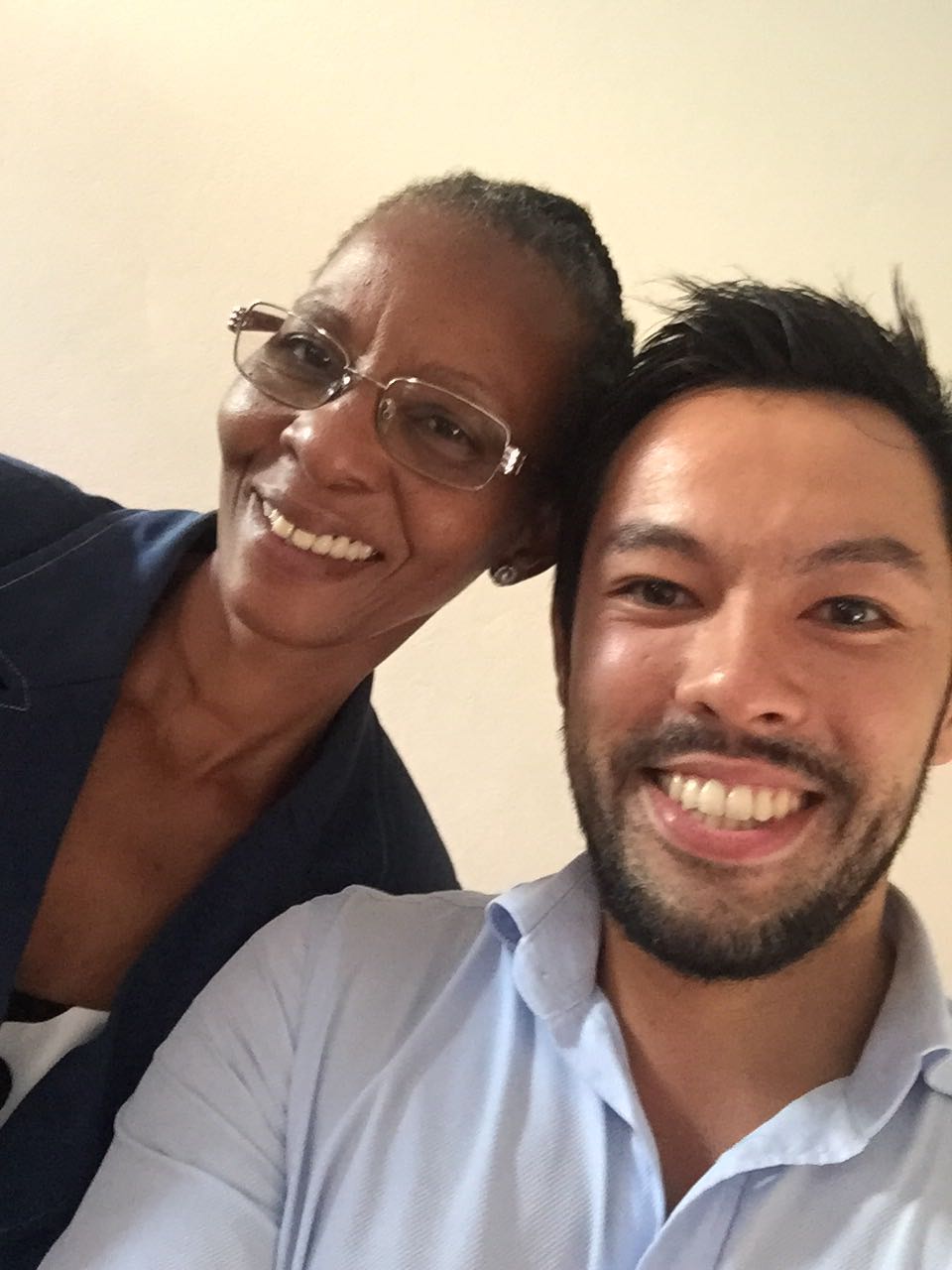The Ivorian who dreamed of the cold… Interview with Hana Diarrassouba, student at Sciences Po Paris
Dynamic and resolute, not the type to let herself be pushed around, Hana Diarrassouba joined Sciences Po Paris in 2014 on the Europe-Africa programme, after obtaining her Baccalaureate at the Lycée Blaise Pascal in Abidjan. It was not necessarily an easy choice, but she has no regrets. She talks to us here about her experience as an African student in higher education establishments in France and in Canada, where she is currently on an exchange programme with the University of Montreal.
Can you tell us about your school career leading up to the Bac?
I have always lived and studied in Abidjan in Ivory Coast, where I attended several schools before going to the Lycée Blaise Pascal from year 8 to year 13. I’m passionate about literature so I decided to incorporate the Literature series.
At what time did you start thinking about what you’d do after the Bac? What different paths did you consider? Which countries/systems? For which reasons?
The question of what to do after my Bac came up in year 12. In fact, I’m someone who plans ahead a lot, so I needed to find a place. My first choice was Sciences Po but I really didn’t think I’d have the ability to get in there, especially given my results in year 12. I began to consider Sciences Po as an option after the post-election crisis in 2010/2011 in my own country. I realised that Ivory Coast needs people who have majored in political studies, who have a certain openness, a new generation with the ability to bring about change in the future.
My second choice was a university in Canada. Although Sciences Po was my first choice, France was not. The country of my dreams was Canada, its system and its people. In fact, Canada welcomes many foreign students and offers them better opportunities than France does, in terms of bursaries and employment.
Where did you apply to, in the end? Was it complicated, applying to study abroad? What were the principal difficulties with the different registrations?
So, I applied for the Europe-Africa programme at Sciences Po, but also applied to several French universities (the Sorbonne, the Catholic University of Lille, etc.) as a back-up. I also applied to three Canadian universities; Université Laval was still my first choice in Canada.
Applying abroad wasn’t as complicated as all that, because it’s all done online these days with the internet.
Logistical problems such as sending and receiving official documents can be more challenging, because the postal services aren’t very well-developed in our countries so we have to use big companies such as DHL or Chronopost, which is very expensive.
When did you find out which of your applications were successful? How did you choose? Looking back, what do you think now?
I received my admissions to the Canadian universities shortly before I took my Bac exams, as well as the French ones. The response from Sciences Po arrived a few days before the Bac results. I had already begun the process for Canada, because I was accepted at the Université Laval. But when I received the response from Sciences Po, I was very uncertain as to which would be the better choice. Should I go to Sciences Po, but have to live in France – a country which still has only limited appeal for me – or go to live my “North American dream”?
I think I made my choice based on the reaction of my parents, my close friends and my family. They were so proud that I’d been accepted by Sciences Po. For them, there was no doubt at all. So, I chose Sciences Po because for me, the institution took priority over the country. Living in France would be a “sacrifice” of 5 or 6 years, before I could return home or go elsewhere.
During my first year at Sciences Po I regretted my decision, because it was very difficult and I kept telling myself I’d have been more fulfilled in Canada, but with time it’s become clear that I made the right choice.
Did you experience any surprises when you arrived in Paris? Was it difficult to adapt? Why is that?
There were no particular surprises when I arrived in Paris. My father came with me, and my sister, who was already a student in Paris, so it was only when I first saw my student rooms that it really hit me. I realised that I was moving on to another stage in my life, a long way from my parents and the safety net of my family.
Sciences Po is a very difficult programme, particularly in the first year when you have to deal with many things all at once…the new environment, your emotions, PARIS, and your first bad grades. I had the worst grades of my life during my first semester at Sciences Po. I took it very badly, but it’s normal when you think you’re a brilliant student and you suddenly find yourself among people who are far more brilliant. You learn from it, you become humble. Paris is not an easy city to live in, because of the long distances you have to travel, especially when you finish classes at 9pm (in the winter!)
But you get used to it very quickly, because you meet people who have experienced the same difficulties and still made progress, which is very motivating.
Let’s talk about the Europe-Africa programme at Sciences Po Paris. What did you study? What are its strong points? Is there anything that could be improved?
The Europe-Africa programme was created in 2012 with the aim of broadening the horizons of Sciences Po on this continent. It’s a very rich programme, especially in human terms. In fact, I’ve met people from all over the world here, not only from Africa; I’ve encountered cultural diversity and open-mindedness.
Under the Europe-Africa programme you study the core subjects offered by Sciences Po (Microeconomics, Macroeconomics, Sociology, History, etc.) as well as subjects related to Africa – its history, its geopolitics and its issues – and the three African languages offered (Swahili, Arabic or Portuguese).
The programme’s major strong point is its diversity, as well as the courses on African geopolitics; I’ve learned an enormous amount from exceptional teachers.
In terms of improvement, primarily it’s the perception that I’m not being taken as seriously by the administration, as the other students. However, since the move to Reims, there have been so many positive changes such as the fact that we have a campus, more specific courses and much stronger links between the students on the programme.
Do you think that African students are made welcome, at Sciences Po and/or in France?
Yes, African students are made welcome at Sciences Po. It’s true that sometimes we have to deal with ignorance from some people, with cliché questions such as “if you’re at Sciences Po that must mean that your father is a politician in your country, don’t you feel ashamed to be using your country’s money?” (By the way, my father is absolutely not a politician) [laughs].
In France, the hardest thing is the question of papers. The administrative procedures are very tedious, particularly in Paris. You arrive in France with a student visa. On arrival, as well as this visa, you have to have a medical in order to be granted a tag. Then, a few months later, you have to apply for a residence permit, which is preceded by a receipt. It’s the same process every year, for five years. You can very quickly get overwhelmed by it all, and some people face many difficulties, depending on where they live (Paris or the suburbs).
You’re on an exchange programme in Montreal this year. How and why did you choose this option?
As I mentioned earlier, Canada was my second choice (or even my first choice) for my studies. When I came to Sciences Po, I said to myself that for my year abroad, I could go to Canada.
Montreal was my first choice because it’s such a cosmopolitan and multicultural city – you can meet the whole world there (my neighbour is from Bahrain). Then, in Montreal there was the option to go to an English-speaking or French-speaking university. When I looked into it further, I realised that Montreal University was the only one from all of Sciences Po’s partner universities to offer political communication, which is my choice for my Master’s degree.
If you had to compare your studies in Montreal with your studies at Sciences Po, and the student life in the two locations, what would you say are Montreal’s strengths and weaknesses?
The studies in Montreal are less demanding, in my opinion. The courses are lighter and everything is set up so that the student can learn the things that he or she will be able to put into practice in the field.
My years as a Bachelor student at Sciences Po were very theoretical and the course was heavy going and very long. The exams are very difficult and procedures are strict. Here, we know the content of the exams before we go in, and things are not so strict in terms of supervision and work.
For me, the student life at Sciences Po is exceptional. There are so many associations that you can join. The restricted environment means that you know everything that’s going on, on campus, and you can easily get involved in student life. This is more difficult in Montreal as the university is immense, with tens of thousands of students. It’s difficult to make friends and make the necessary commitment in an association.
So, Montreal’s strong points are the fact that the courses are focused on the practical side, which is really exciting as you can see that you have developed a real professional ability by the end of the semester, and the friendliness of the professors, who do everything they can to ensure your success.
Sometimes the degree of lenience can be a bit shocking (students come and go as they please from the classrooms, they have no predefined methodology, they don’t come to class because nobody called them, etc.). This could be improved to create a better working environment.
Where do you see yourself in three years’ time? What are your plans?
In three years…
In three years, I hope to have a Master’s degree in communication from Sciences Po. I’ll be beginning an Executive Masters course in media and politics at the LSE or George Washington University, and working for a political communication and public relations agency. That would be my ideal position. However, I’m also considering the option of returning to Africa straight after I finish my Masters. The further I advance, the more doubts I have about that option. I think I have more idea of where I’ll be in five years than in three, professionally speaking. But in three years I also see myself managing my own women’s leadership NGO “LeadHer”, which I founded this year with a friend. It aims to promote the role of women in West Africa.
What advice would you give to African college students about furthering their studies, based on your experience? How can they prepare best for life after the Bac?
First of all, many African college students choose to follow the study paths chosen by their parents. This is a mistake, because ultimately, it’s not the parents who have to face up to the challenges involved. Then, you need to start thinking about university right from the beginning of your college course and not in the final year, because it’s your future that’s at stake and you must take it seriously. This also enables those who don’t have so much money to spend several months finding out about potential bursaries and other options.
The best way to prepare for post-Bac studies is to make it a key priority very early on. You should take part in conferences about local and foreign universities, go to forums and participate in groups on social media. Get to know people who are studying subjects that interest you, etc.
Finally, ask yourself the following questions: What do I want to do? Where do I want to study? Where do I see myself in five years’ time? …in 10 years’ time? What are my long-term and short-term objectives? By taking this approach, you will be ready by the end of year 12.
Do you know about the IB programme? What do you think of it?
I think it’s a great thing. I found out about it several months after my Bac, via the African Leadership Academy, and I really regretted not having done more research earlier. It opens up many doors and offers such a well-rounded education that ultimately, IB students will be able to study in any number of subject areas. Also, the IB programme prepares you for the world’s greatest universities, which is something we all dream of.
This blog is designed to be interactive. If you’re a college student in Africa and you have questions about studying abroad, don’t hesitate to post your questions on this blog, or comment on this post. Are you an African student studying abroad? Tell us your story!






